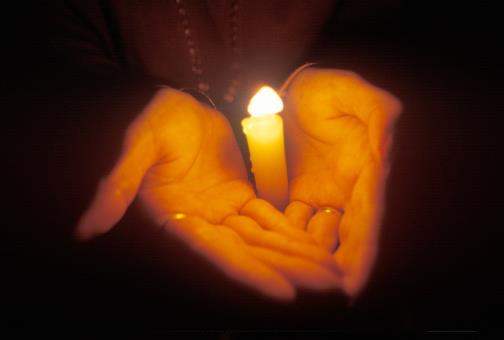Faith Traditions
Vanderbilt University’s campus is host to a diverse religious presence. Noted below are some of the many religious organizations represented, both on our campus and within the greater Nashville area. Click the icons to learn more about the various faith traditions.
- Bahá’í: The Bahá’í faith is one of the youngest of the world’s major religions. It was founded by Bahá’u’lláh in Iran in 1863. There are 6 million Bahá’ís in the world, in 235 countries. Bahá’í religion may be unique in the way that it accepts all other faiths as true and valid.
- Buddhism: Buddhism is a spiritual tradition that focuses on personal spiritual development and the attainment of a deep insight into the true nature of life. There are 376 million followers worldwide.
- Christianity: Christianity is the most popular religion in the world with over 2 billion adherents. Christians believe that Jesus was the Messiah promised in the Old Testament, and is the son of God. Christians also believe in the Trinity: the Father, the Son, and the Holy Ghost or Spirit.
- University Catholic Chaplain
- Reformed University Fellowship Chaplain – Rev. Richie Sessions
- United Methodist Campus Minister – Rev. Nancy H. Parker
- Presbyterian (USA) Chaplain & UKirk Nashville Minister – Rev. Lindsey Groves
- University Episcopal Chaplain – Rev. Rebecca Stevens, M.Div
- Baptist Campus Chaplain – Thom Thornton
- Hinduism: Hinduism is the religion of the majority of people in India and Nepal. It also exists among significant populations outside of the sub continent and has over 900 million adherents worldwide.
- Islam: The word Islam means “submission to the will of God”. Islam is the second largest religion in the world with over 1 billion followers. Followers of Islam are called Muslims. Muslims believe that Islam was revealed over 1,400 years ago in Mecca, Arabia.
- Jainism: Jainism is an ancient religion from India that teaches that the way to liberation and bliss is to live lives of harmlessness and renunciation. The essence of Jainism is concern for the welfare of every being in the universe and for the health of the universe itself.
- Judaism: Judaism is the original of the three Abrahamic faiths, which also includes Christianity andIslam. According to information published by The Jewish People Policy Planning Institute, there were around 13.1 million Jewish people in the world in 2007, most residing in the USA and Israel.
- Campus Chabad Chaplain – Rabbi Shlomo Rothstein
- Executive Director, Ben Schulman Center for Jewish Life – Ari Dubin, M.A.
![]()
- Paganism: Paganism describes a group of contemporary religions based on a reverence for nature. These faiths draw on the traditional religions of indigenous peoples throughout the world.
![]()
- Shintoism: The essence of Shinto is the Japanese devotion to invisible spiritual beings and powers called kami, to shrines, and to various rituals. Shinto is a very local religion, in which devotees are likely to be concerned with their local shrine rather than the religion as a whole. Many Japanese will have a tiny shrine-altar in their homes.
![]()
- Sikhism: There are 20 million Sikhs in the world, most of whom live in the Punjab province of India. Sikhism was founded in the 16th century in the Punjab district of what is now India and Pakistan. It was founded by Guru Nanak and is based on his teachings, and those of the nine Sikh gurus who followed him.
- Taoism: Taoism is an ancient tradition of philosophy and religious belief that is deeply rooted in Chinese customs and worldview. Taoism is also referred to as Daoism, which is a more accurate way of representing in English the sound of the Chinese word. Taoism is about the Tao. This is usually translated as the Way. But it’s hard to say exactly what this means. The Tao is the ultimate creative principle of the universe. All things are unified and connected in the Tao.
![]()
- Unitarian Universalism: There are about 800,000 Unitarians worldwide. Unitarianism is an open-minded and individualistic approach to religion that gives scope for a very wide range of beliefs and doubts. Religious freedom for each individual is at the heart of Unitarianism. Everyone is free to search for meaning in life in a responsible way and to reach their own conclusions.
![]()
- Zoroastrianism: Zoroastrianism is one of the world’s oldest monotheistic religions. It was founded by the Prophet Zoroaster (or Zarathustra) in ancient Iran approximately 3500 years ago. For 1000 years Zoroastrianism was one of the most powerful religions in the world. It was the official religion of Persia (Iran) from 600 BCE to 650 CE. It is now one of the world’s smallest religions. In 2006 the New York Times reported that there were probably less than 190,000 followers worldwide at that time. For more information, please click here.
*As sourced from the BBC.
